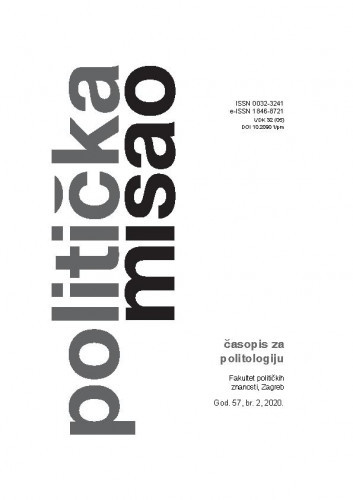Autor tematizira recepciju političke ekonomije u Hegelovoj Filozofiji prava. Ta je recepcija bila presudna za razvoj Hegelove pravno-političke filozofije i njenu zrelu formulaciju, ali je istovremeno njome posredovan i Hegelov odnos prema modernom prirodnom pravu i ugovornoj političkoj teoriji. Oslanjajući se na Strpićeve nalaze, autor pokazuje kako je mjestom realizacije ugovornog modela države Hegel smatrao građansko društvo. Zakonitosti imanentne modernoj tržišnoj ekonomiji, koje je “otkrila” politička ekonomija, prema Hegelovu sudu čine izlišnim ugovornu konstituciju države, ali i predstavljaju unutarnju mjeru kritike ugovorne teorije. To međutim ne znači da Hegel prihvaća model društva klasične političke ekonomije niti njeno razumijevanje odnosa države i društva. On dovodi u pitanje prije svega njenu središnju pretpostavku o sposobnosti tržišta za samoregulaciju, zbog čega smatra nužnom državnu regulaciju tržišta. U posljednjoj analizi pokazuje se kako je “općenitost” građanskog društva utemeljena u “općenitosti” političke države, koja predstavlja viši stupanj ozbiljenja čovjekove slobode.; The author deals with Hegel’s reception of political economy in the Philosophy of Right, showing that reception to be decisive for the development of Hegel’s legal and political philosophy and its mature form, but also for his understanding of the modern natural law tradition and the theory of social contract. Relying on the findings of Dag Strpić, the author argues that Hegel considered “civil society” to be the place of realization of the contractual idea of the state. The “laws” immanent to modern market economy, which were “discovered” by political economy, make in Hegel’s view contractual constitution of the state superfluous and provide at the same time the internal measure for the critique of the contractual theory. This, however, does not mean that Hegel accepts the social model of classical political economy, nor its understanding of the relation between the state and society. He questions its central assumption on the self-regulatory capacity of the market, for which reason he finds necessary the regulation of the market by the state. In the final analysis, as it is shown, the “universality” of civil society is grounded in the “universality” of the political state, which is a higher level of actualization of human freedom than civil society.
Sažetak

 Politička misao : Croatian political science review : 57,2(2020) / glavni i odgovorni urednik Dejan Jović.
Politička misao : Croatian political science review : 57,2(2020) / glavni i odgovorni urednik Dejan Jović.